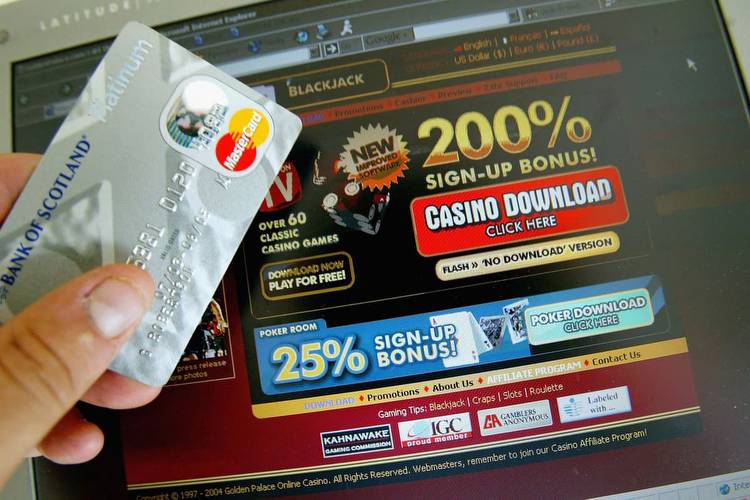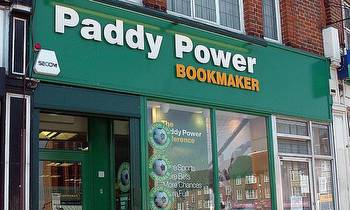Gambling White Paper: proposed new UK Gambling Act laws

Culture Secretary Lucy Frazer has said a long-awaited Gambling White Paper, due to be unveiled in Parliament today (27 April), will help "redress the power imbalance between punters and operators" while preventing addiction.
Following the explosion of online betting and a number of high-profile cases where customers suffered significant losses or took their own lives, ministers are conducting the most thorough review of gambling laws in 15 years to make sure they are appropriate for the digital age.
Campaigners are hopeful that the paper will include plans for a levy on gambling companies, guidelines for affordable gambling, and maximum bets on online slots comparable to those seen in traditional casinos.
However, reports suggest that the majority of the measures, including precise stake limits for online slot machines and restrictions on digital marketing tactics like "free" bets or bonuses, will be subject to further review, signalling yet more delays for the enactment of much-anticipated changes.
Here is everything you need to know about it.
What measures will be taken to tackle gambling addiction?
The paper is expected to include proposals for a levy on gambling companies, guidelines for responsible and affordable gambling, and precise maximum bets on online slots that are comparable to those seen in conventional casinos. It is also expected to include limitations on digital marketing strategies like “free” bets or bonuses.
The new, stricter gambling regulations are also reported to include checks on gamblers who lose £1,000 per day or more. Sources say that when a gambler loses £1,000 in 24 hours or £2,000 over 90 days, according to sources, these checks will start to operate. It is not yet clear how these will be implemented.
The most recent notable changes to the UK’s gambling laws were made in 2014 with the introduction of the Gambling (Licensing and Advertising) Act. Since then, there have been some additional changes and updates to the UK’s gambling laws, including the introduction of new regulations on online age and ID verification in May 2019, and restrictions on credit card gambling in April 2020.
But the majority of the UK’s gambling laws were written before the advent of online gambling, which has since become a dominant force in the industry. The laws were also written before the widespread use of mobile devices and other technologies that enable people to gamble on the go.
In an article published on Thursday (27 April) in The Times, Culture Secretary Lucy Frazer said gambling apps on mobile phones had for some become “a trapdoor to despair and isolation”. She said gambling regulations have not kept up with changes in the industry, in particular because of the rise of smartphones and the internet.
“British punters spend almost £10 billion a year on online casino games, sports betting and other forms of commercial gambling,” Frazer said. “Our phones have opened up a digital wonderland where everyone can access a maze of flashing slot machines, virtual races and blackjack tables.”
Frazer said the Gambling White Paper will address the disparity in power between players and operators, take additional steps to protect children, and provide funding for studies on how to curb gambling addiction in the future.
Campaigners have also called for a ban on gambling advertising and sponsorship but the Premier League has already announced a voluntary ban on gambling sponsorship from the front of match-day shirts. It also said it was collaborating with other sports to create a new code for gambling sponsorships.
Zoe Osmond, chief executive of charity GambleAware, said: “Gambling harm is a serious public health issue, which can affect anyone. We look forward to the publication of the White Paper and with it, further regulation to prevent gambling harm.”
How will it affect gambling companies?
The much-delayed gambling review began in December 2020, and has been overseen by four culture secretaries, six gambling ministers, and three prime ministers. Its official release was delayed four times during the political unrest of the Covid-19 pandemic.
Peter Jackson, chief executive of Flutter Entertainment, whose brands include SkyBet, Paddy Power and Betfair, said: “We welcome the publication of the White Paper, which marks a significant moment for the UK gambling sector.
“Whilst we will need to review the details of the proposals once published, we believe proactive change will lead to a better future for our industry.
“We will continue to constructively engage with the Government and Gambling Commission as part of any subsequent industry consultation processes,” Jackson added, “with a focus on providing support to the minority at risk of gambling harm without interfering disproportionately with the enjoyment of the vast majority.”
The resulting paper has been the focus of intense lobbying efforts because the industry is worried that policies which could help combat addiction and reduce associated harms will have a negative effect on their profits.
MPs including prominent ministers and shadow frontbenchers have received tickets and lavish hospitality to the Brits, the Euro 2020 finals, Royal Ascot, Cheltenham, Wimbledon, Twickenham and almost every other major sporting event, plus an Ed Sheeran concert, with a total value of almost £200,000.
Gambling companies and the main industry lobbying group secured more meetings with the government than the official regulatory body, sitting down with ministers nearly every month for three years.
More meetings with government ministers have been arranged by gambling organisations including the Betting and Gaming Council, an industry representative organisation, since January 2020 than by the Gambling Commission, the official independent regulatory body.
Since January 2020, gambling organisations including the Betting and Gaming Council, an industry representative organisation, have secured more meetings with government ministers than the Gambling Commission, the official independent regulatory body.
And on 5 April, Scott Benton, the chair of the All Party Parliamentary Group (APPG) on Betting and Gaming, had the Conservative whip withdrawn after an undercover Times investigation revealed he had appeared to offer to lobby government, in an apparent breach of the MPs code of conduct, for what he believed to be an investment firm interested in the gambling industry.

































